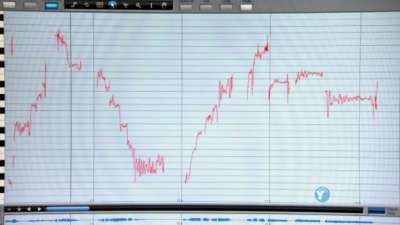The WORST episodes of NOVA scienceNOW
Every episode of NOVA scienceNOW ever, ranked from worst to best by thousands of votes from fans of the show. The worst episodes of NOVA scienceNOW!
NOVA scienceNOW is a news magazine version of the venerable PBS science program NOVA. Premiering on January 25, 2005, the series was originally hosted by Robert Krulwich, who described it as an experiment in coverage of "breaking science, science that's right out of the lab, science that sometimes bumps up against politics, art, culture". At the beginning of season two, Neil deGrasse Tyson replaced Krulwich as the show's host. Following season five, David Pogue began hosting.
#1 - 1918 Flu, Mass Extinction, Papyrus
Season 2 - Episode 2 - Aired 11/21/2006
What caused the greatest mass extinction nearly 250 million years ago?1918 Flu: The 1918 flu virus is revived and decoded in the hopes that we can learn from it before the next pandemic.Profile: Cynthia Breazeal: A look at MIT social roboticist Cynthia Breazeal.Papyrus: Can we use space-age technology to read papyri fragments that are almost 2,000 years old?
Watch Now:Apple TV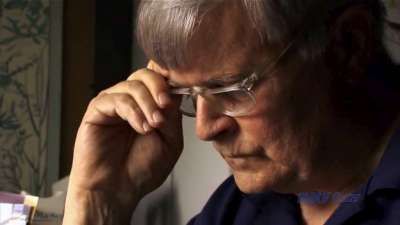
#2 - Marathon Mouse, Dinosaur Plague
Season 4 - Episode 3 - Aired 7/14/2009
Watch how an "exercise pill" turns couch-potato mice into athletes, explore a controversial new theory of what killed the dinosaurs, meet the first Latino-American astronaut, and find out why the beautiful northern lights signal a threat to our electronic society.
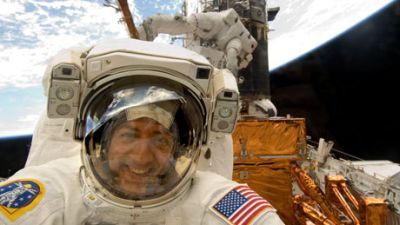
#3 - Saving Hubble Update, Gangster Birds
Season 4 - Episode 7 - Aired 8/25/2009
Get an astronaut's view of the Hubble repair mission, find out why cowbirds are called "gangster birds," meet a Mexican immigrant farmworker-turned-brain surgeon, and learn how neuroscientists are finding ways to erase memories.
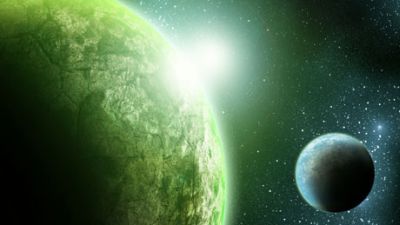
#4 - Hunt for Alien Earths, Art Authentication
Season 4 - Episode 2 - Aired 7/7/2009
Join astronomers hunting for Earth-like planets, see how computers distinguish authentic art from forgeries, meet a spider biologist who studies sexual cannibalism, and learn about genes that may be involved in causing autism.
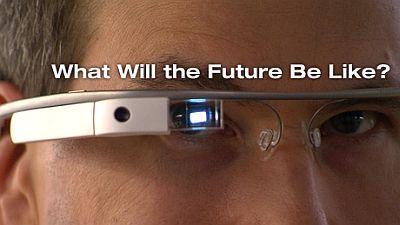
#5 - What Will the Future Be Like?
Season 6 - Episode 6 - Aired 11/14/2012
The technologies that will transform our lives decades from now are already taking shape in laboratories around the world. David Pogue imagines what the Tech page of The New York Times might look like 10, 20, or 30 years from today, as he meets the innovative engineers and computer scientists working to create thought-controlled video games, robotic exoskeletons, and virtual reality that seamlessly integrates with the real world.
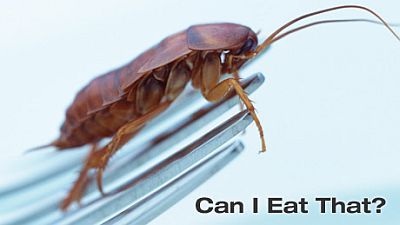
#6 - Can I Eat That?
Season 6 - Episode 4 - Aired 10/31/2012
What are the secrets behind your favorite foods? Why are some treats, like chocolate-chip cookies, delectable, while others, like cookies made with mealworms, disgusting? You might think you understand what makes something sweet, salty, or bitter, but David Pogue gets a taste of a much more complicated truth, as he ventures into labs and kitchens where everything from apple pie to Thanksgiving turkey to juicy grasshoppers is diced, sliced, dissected, and put under the microscope. If scientists can uncover exactly what's behind the mouth-watering flavors and textures we take for granted every day, could they help us enjoy our food more—without packing on the pounds?
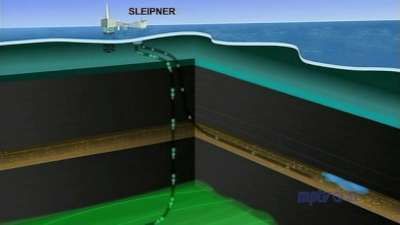
#7 - Picky Eaters, Capturing Carbon, Sea Lions and Walruses
Season 4 - Episode 4 - Aired 7/21/2009
Discover why picky eaters may have a genetic excuse, learn about a new strategy for capturing carbon dioxide from the atmosphere, see just how intelligent marine mammals can be, and meet a biomedical engineer who has figured out a way to make tiny livers in her lab.
Watch Now:Apple TV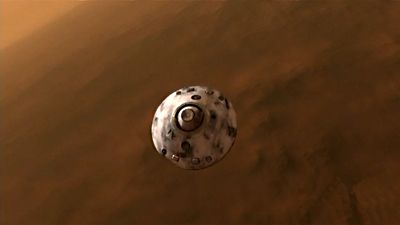
#8 - Phoenix Mars Lander, Brain Trauma, Mammoth Mystery
Season 3 - Episode 6 - Aired 7/30/2008
Phoenix Mars Lander - NASA's latest robot has already found frozen water and is looking for more signs that the Red Planet could support life. Brain Trauma - Even so-called "mild" head injuries turn out to be anything but. Mammoth Mystery - A pair of mammoth skeletons is found locked together by their tusks. What happened? Profile: Judah Folkman - Once scorned for his ideas about how cancer grows, the late Judah Folkman is now hailed as a visionary.
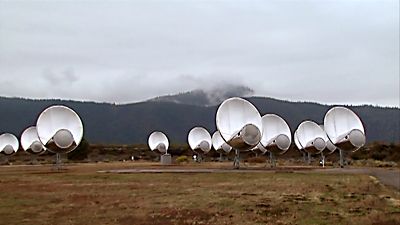
#9 - Leeches, The Search for ET, Stem Cells Breakthrough
Season 3 - Episode 5 - Aired 7/23/2008
Leeches - A century after falling out of favor, medicinal leeches are back in hospitals, sucking away on patients' wounds. SETI - Astronomers have their radio telescopes tuned to receive signals from alien worlds. But is anybody out there? Stem Cells Breakthrough - Three separate teams overcome a biomedical hurdle—creating stem cells without the use of human embryos. Profile: Edith Widder - Meet a marine biologist and explorer who has engineered new ways to spy on deep-sea creatures.
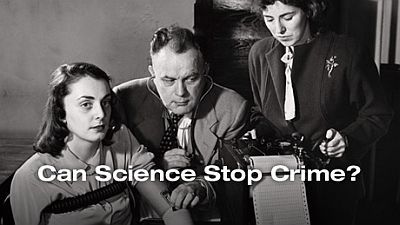
#11 - Can Science Stop Crime?
Season 6 - Episode 2 - Aired 10/17/2012
What's the secret to stopping crime? David Pogue gives the third degree to scientists pushing the limits of technology, not only to solve horrific murders but also to try to prevent crimes before they even happen. Pogue learns the latest techniques, from unraveling the clues embedded in a decomposing corpse, to detecting lies by peering directly into a suspect's brain, to tracking the creation of a criminal mind. And we meet a genius crime-stopper who has made some terrifying discoveries, including how easy it is for a bad guy to highjack not just your laptop but your kids’ toys, medical devices, even your car.
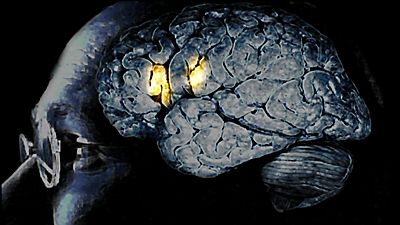
#12 - Bird Brains, Space Storms
Season 3 - Episode 4 - Aired 7/16/2008
Bird Brains - Clues to the origins of human language are turning up in the brains of birds. Space Storms - Behind the dazzling display of the aurora borealis are space storms that could turn the lights off here on Earth. Profile: Yoky Matsuoka - A former tennis prodigy aims to create advanced prosthetic limbs controlled by human thought. Smart Bridges - Can we engineer bridges that tell us what's wrong with them before it's too late?
Watch Now:Amazon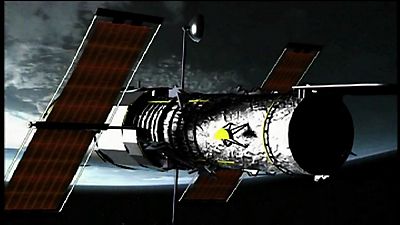
#13 - Saving Hubble, First Primates
Season 3 - Episode 3 - Aired 7/9/2008
Saving Hubble - Two teams of spacewalkers take on the risky mission of reviving the ailing Space Telescope. First Primates - Our most distant primate ancestors, which lived about 55 million years ago, were tree-dwellers the size of mice. Profile: Alfredo Quiñones-Hinojosa - He jumped the fence from Mexico to work as a farmhand and ended up a leading brain surgeon. Killer Microbe - A relatively benign bug becomes a highly lethal pathogen, known to U.S. soldiers as Iraqibacter.
Watch Now:AmazonApple TV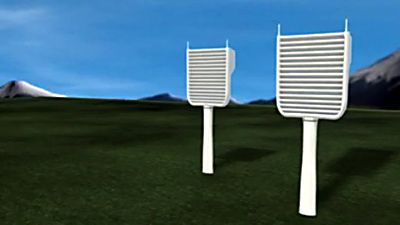
#14 - Personal DNA Testing, Art Authentication, Capturing Carbon
Season 3 - Episode 2 - Aired 7/2/2008
Personal DNA Testing - Genetic testing to assess risk factors for a handful of serious illnesses is now commercially available. But is it a good idea? Art Authentication - See how clever computer algorithms can distinguish a master fake from a masterpiece. Capturing Carbon - An eighth-grader's science fair project prompts her scientist father to develop a new way to pull excess carbon dioxide out of the atmosphere. Profile: Pardis Sabeti - By night she's a rocker. By day, she's a Harvard geneticist tracking the evolution of the human genome.
Watch Now:Amazon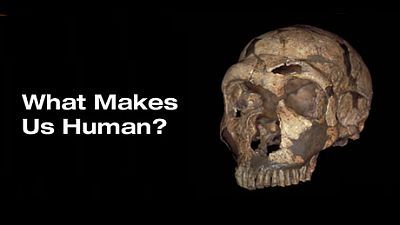
#15 - What Makes Us Human?
Season 6 - Episode 1 - Aired 10/10/2012
Scientists have struggled for centuries to pinpoint the qualities that separate human beings from the millions of other animal species that have evolved on this planet. David Pogue explores the traits we once thought were uniquely ours—language, tool-making, even laughter—to uncover their evolutionary roots. He'll trace some of the crucial steps that transformed cave men to accountants, and find out if any of his own DNA came from a Neanderthal ancestor.
Watch Now:Amazon#16 - Artificial Life, Lightning
Season 1 - Episode 4 - Aired 10/18/2005
Featured segments include: scientists making life in the lab, lightning that may be triggered by cosmic rays, a profile of neuroscientist Erich Jarvis, the advances of fish surgery, the too human appearance of Hollywood aliens, and an update on Hurricane Katrina.
Watch Now:Amazon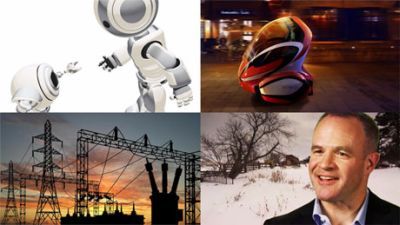
#17 - What's the Next Big Thing?
Season 5 - Episode 6 - Aired 2/23/2011
In this episode of NOVA scienceNOW, come face to face with social robots that understand human feelings, carry on conversations, even make jokes. Then travel to Haiti, where geologists investigate the 2010 earthquake not long after it struck for clues to how to better forecast future quakes. Afterwards, join engineers at General Motors who are testing tiny, two-wheeled cars called EN-Vs, which one day might drive themselves through city streets. Learn about proposals for making our outdated electric grid "smart." And meet Nebraska native Jay Keasling, a pioneer in synthetic biology who shares his work on developing "designer" microbes that produce biofuels and medicines.
Watch Now:Amazon#18 - 10th Planet, Twin Prime Conjecture, Ivory-Billed Woodpecker, Pandemic Flu, Lab Meat?, Stem Cells
Season 1 - Episode 5 - Aired 1/10/2006
Featured segments include: a possible tenth planet in our solar system, the twin prime conjecture, a possible reappearance of the ivory-billed woodpecker, a look at the bird flu and whether it will move to people, the growing of meat in a laboratory culture, an update on stem cells, the link between hurricanes and global warming, and a profile of cancer researcher Tyler Curiel.
Watch Now:Amazon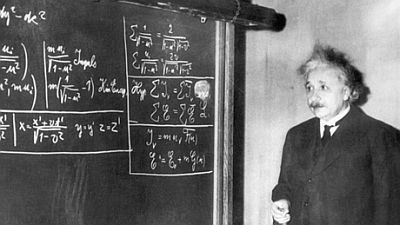
#19 - How Smart Can We Get?
Season 6 - Episode 3 - Aired 10/24/2012
How do you get a genius brain? Is it all in your genes? Or is it hard work? Is it possible that everyone’s brain has untapped genius–just waiting for the right circumstances so it can be unleashed? From a man who can immediately name the day of the week of any date in history to a “memory athlete” who can remember strings of hundreds of random numbers, David Pogue meets people stretching the boundaries of what the human mind can do. Then, Pogue puts himself to the test: after high-resolution scanning, he finds out how the anatomy of his brain measures up against the greatest mind of the century: Albert Einstein.
Watch Now:Amazon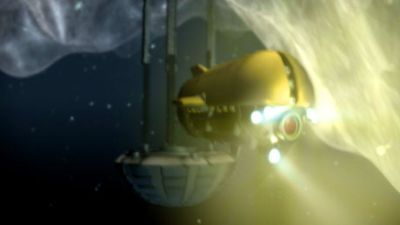
#20 - Public Genomes, Algae Fuel, Arctic Ocean Seafloor
Season 4 - Episode 6 - Aired 8/18/2009
Explore the controversies behind genetic testing and genome sequencing, learn about algae fuel, follow an expedition to the Arctic Ocean seafloor, and meet a woman engineer designing prosthetic limbs controlled by human thought.
Watch Now:Amazon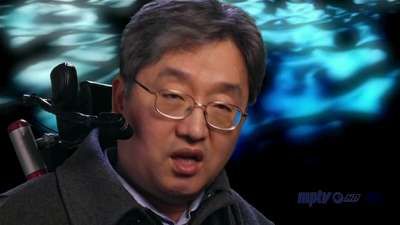
#21 - Sleep, First Primates, Earthquakes in the Midwest
Season 4 - Episode 8 - Aired 9/1/2009
Using new data from cave stalagmites and the Mississippi riverbed to understand how and why earthquakes strike in the heartland; the crucial role sleep plays in strengthening memories and facilitating learning; a profile of marine geologist Sang-Mook Lee; paleontologist Jonathan Bloch, who thinks that tiny bones embedded in limestone may be the evolutionary evidence of the creatures that evolved into primates.
Watch Now:Amazon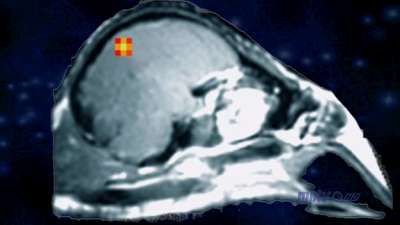
#22 - Moon Smasher, Secrets in the Salt, Bird Brains
Season 4 - Episode 5 - Aired 7/28/2009
Follow a NASA satellite looking for water on the moon, see what ancient salt deposits reveal about life 250 million years ago, learn how bird brains are remarkably similar to our own, and meet a climatologist who digs for clues to climate change in the world's highest glaciers.
Watch Now:Amazon#24 - Little People of Flores, T. rex
Season 1 - Episode 2 - Aired 4/19/2005
Featured segments include: the discovered remains of three-foot-tall humans on the island of Flores, a look at how T. Rex got to be so big, a profile of nanotechnologist Naomi Halas, the issues surrounding stem cells, and the yearly freeze and thaw cycle of the common wood frog.
Watch Now:Amazon#25 - Aging, Space Elevator, Maya
Season 2 - Episode 3 - Aired 1/9/2007
A look at recent research on the aging process, and how we might slow it down.Space Elevator: The possible creation of a "space elevator" made from nanotubes, and a NASA contest designed to fuel innovation behind this idea.Maya: The use of a new NASA satellite technique to find lost Maya ruins.Profile: Bonnie Bassler: A look at Princeton molecular biologist Bonnie Bassler and her research on bacteria communication.
Watch Now:Amazon